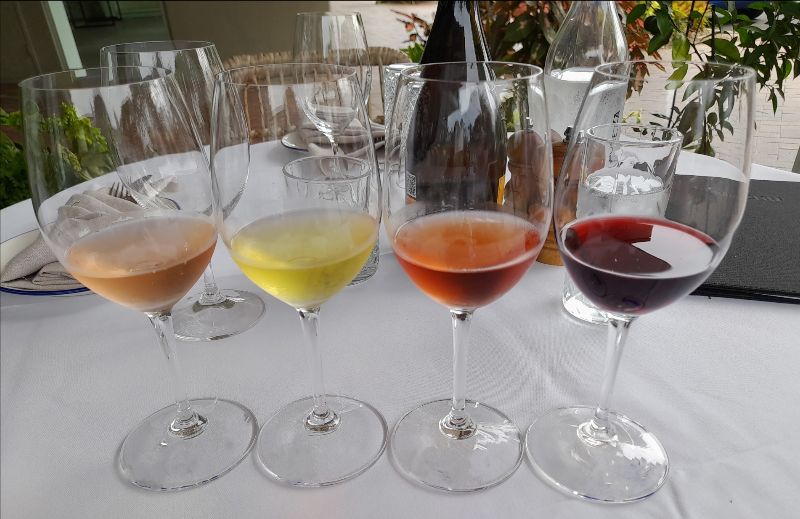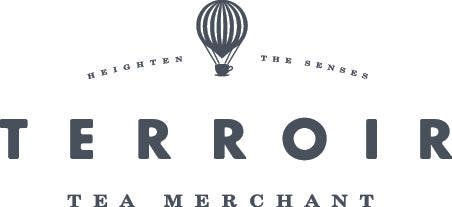Tea infused wine

Even though we've infused tea in liquor to make cocktails and attended a tea and wine tasting workshop at the World Tea Expo, we did not consider infusing tea in wine before now. Naysayers might think it's "wasting" a high quality tea or wine, but it's actually a new way of enjoying these beverages. When you make a good match, the flavours you love in both will be enhanced and you could create a new tasting experience that you enjoy even more.
Step 1: Choose the tea – teas like light oolongs, first flush Darjeelings, green and white teas have a variety of flavours including buttery, floral, vegetal and fruity. You can infuse these teas in white wines. Dark oolongs and black teas can be malty, nutty, and earthy with wood or cocoa flavours, and can be infused in red wines. Ask yourself what flavours you want to enhance and if you'll infuse in a white or red wine.
Step 2: Choose the wine – white wines can be creamy, grassy, dry or sweet, with citrus or stone fruit, herbaceous or floral flavours. Red wines have flavours like oak, pepper and leather, and also berry and stone fruits. To start out, choose a common type of wine, like Chardonnay or Riesling for white and Cabernet Sauvignon or Pinot Noir for red.
Step 3: Make a match – if you've chosen a light oolong like Alishan High Mtn Eco Formosa with buttery notes, an oaked Chardonnay is buttery with hints of vanilla. Our milky oolong Jin Xuan is also a good match. A white tea like Nepali Silver Thunder brewed in an unoaked Chardonnay increases the fruity flavours in both. To enhance floral and herbaceous flavours, infuse Giddapahar SFTGFOP1 First Flush Darjeeling, Bao Chung or Tsui Yu Jade in a Riesling. Our Lung Ya or Arakai Spring Green teas match well with a Sauvignon Blanc.
Our most popular tea brewed hot or cold is Alishan High Mtn Aged Eco Red . This dark oolong infused at room temperature in a Cabernet Sauvignon wine with dark fruit, wood and spice flavours, is a perfect match. Our Arakai Spring Black is also a good match. Try this Australian tea brewed in an Australian red wine. Black Ruby or Castleton FTGFOP1 Second Flush Darjeeling are good choices for a Pinot Noir.
Step 4: Brew – tea infused in a white wine is cold-brewed in the fridge. Some recipes suggest using a bottle of wine, but we recommend starting out with 1 or 2 cups of wine to be sure you like the flavours. Measure 4.5 grams of loose leaf tea per cup of white wine and brew for several hours. Tea infused in red wine is ambient-brewed at room temperature. Use the same ratio of tea leaves to wine and brew for several hours. The flavours change the longer you infuse, so taste along the way.
Tip: rinse the tea leaves in hot water before brewing so the leaves start to open. Add the rinsed tea leaves to a sealed glass pitcher, then add the wine to start the infusion.
Tip: a roasted tea has a strong smoky flavour when brewed for several hours. Keep this in mind and choose teas with light or no roasting if you don't want this flavour.
Step 5: Enjoy – to remove the leaves, pour the infusion through a fine mesh strainer and into a glass pitcher, carafe or decanter. If you used all of the wine, you can also return the infusion to the original bottle. Serve in a wine glass and enjoy! Be sure to keep tasting notes and include how the aromas and flavours of the changed.

Leave a comment